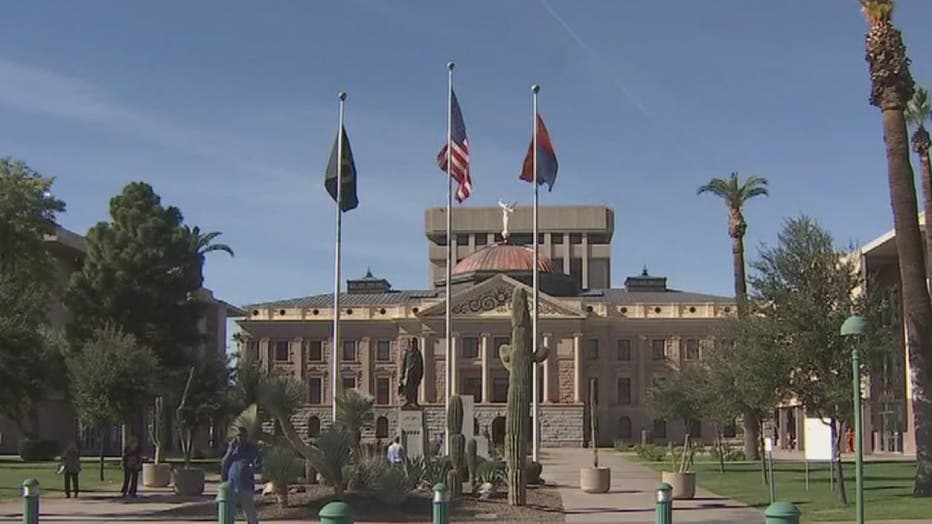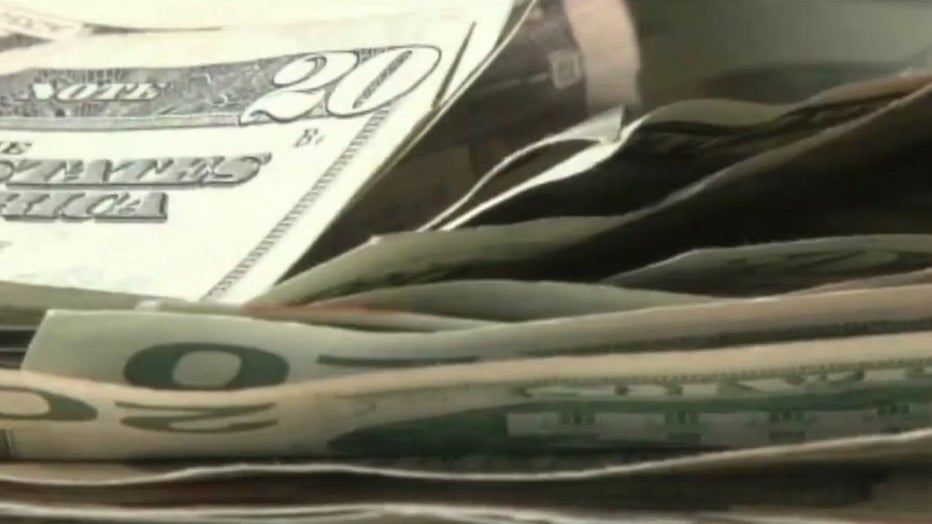Gov. Hobbs announces new tax rebate for some Arizonans: Find out if you qualify for it
PHOENIX - Arizona Governor Katie Hobbs announced on Oct. 31 the deployment of a new tax rebate that officials say will "put many back in the pockets" of about 750,000 families in Arizona.
"I made a promise that when I took office, I would take every opportunity I had to make it easier for Arizonans to provide for their families and lower the cost of living. I am so pleased to be able to deliver this relief with the Arizona Families Tax Rebate," read a portion of Gov. Hobbs' statement.
Here's what to know about the tax rebate, and whether or not you qualify for it.
What does the tax rebate entail?
According to an FAQ that is posted on the Arizona Department of Revenue's website, the rebate is a one-time affair that involves a return payment from the government to the taxpayer.
Eligible families, according to Gov. Hobbs' statement, could receive up to $750 in rebates.
Why are rebates being handed out?

Arizona State Capitol
According to ADOR's website, the rebate is being issued as a result of Senate Bill 1734, which was signed into law by Gov. Hobbs.
The bill, according to the Arizona State Legislature's website, was passed by the State Senate in a 24-6 vote on May 10, followed by a 46-13 vote in the State House on the same day.
What are the requirements to get the rebate?
ADOR's website listed a number of requirements that will need to be met before a taxpayer can receive a rebate. They include:
- Claiming Arizona's dependent tax credit on the 2021 full year Arizona resident individual income tax returns, and
- Paid at least $1 in Arizona individual income tax on their 2021 returns, or
- Paid at least $1 in Arizona individual income tax on their 2020 or 2019 Arizona returns, under the same filing status as their 2021 return.
ADOR has set up a website where people can check on their rebate status.
I meet the requirements. How much money will I get?
That depends on how many dependents were claimed on your tax returns.
According to ADOR officials, those eligible will get $250 for every claimed dependent who is under the age of 17 and $100 for every claimed dependent over the age of 17, based on their 2021 tax returns.
The maximum rebate amount, according to ADOR officials, is $750.
I meet the requirements, but I no longer live in Arizona. Do I still get the rebate?
Officials with ADOR say people who meet the requirements, but no longer live in Arizona, will also get the rebate.
"The tax rebate will be sent to the direct deposit account on file or a paper check will be issued to the last known address referenced in your tax year 2021 or 2022 return filed with the Arizona Department of Revenue," read a portion of ADOR's website. "If any of that information has changed and the payment is returned to ADOR, such that you have not received it, you will have the opportunity to submit a claim through ADOR’s online portal."
I meet the requirements, but I'm now a divorcee. Will my rebate be split with my ex?
According to ADOR officials, the rebate will not be split, and will go to the first-listed taxpayer on any qualifying 2021 joint individual income tax return.
"Thus, if your ex-spouse was the first-listed taxpayer on the joint return, ADOR will issue the rebate to your ex-spouse," read a portion of the website.
Do I need to pay the rebate back?
ADOR officials state that people will not be owing them any money if they take the rebate.
How will the rebate be issued?
ADOT officials say for eligible taxpayers who provided direct deposit in their 2021 or 2022 tax returns, they will get the rebate via direct deposit.
"If ADOR does not have a taxpayer’s direct deposit information, a paper check will be mailed to the taxpayer’s last known address," read a portion of ADOR's website. "If your direct deposit information is out of date and the rebate payment is not successfully processed, the Arizona Department of Revenue (ADOR) will issue a paper check to your last known address."
Will I have to pay federal tax on the rebate?

ADOR officials say this is a matter that IRS officials have to make a decision on.
"The Arizona Department of Revenue has reached out to the IRS in order to obtain a federal taxability determination," read a portion of ADOR's website.

